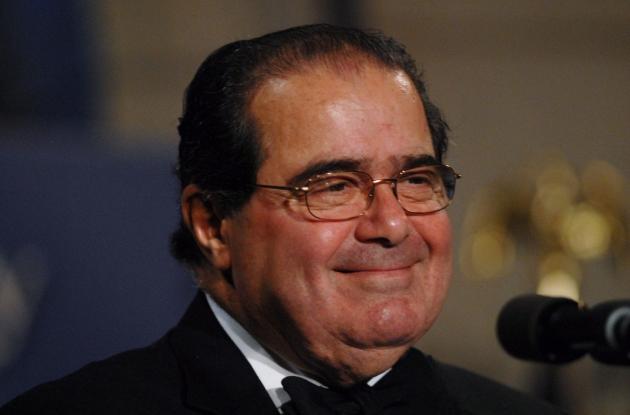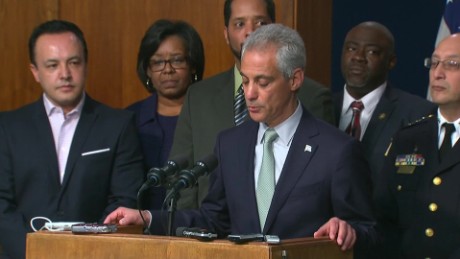[fblike]
 The passing of Supreme Court justice Antonin Scalia last Saturday in Shafter, Texas has thrown the nation’s political scene into turmoil. Shortly after Scalia’s death was announced, Senate Majority Leader Mitch McConnell said that he had no intention of allowing President Barack Obama to appoint a replacement and that voters in the next presidential election should have a voice in the process. Democrats and liberals decried the statement, arguing that President Obama has a constitutional right to appoint a new justice and that the Senate must give the nominee a fair and proper hearing. Since Scalia was the leading conservative on a divided court, a liberal or progressive replacement would move the Court to the left for the first time in more than thirty years. The calculations surrounding a new nomination battle could significantly affect the outcome of the 2016 presidential election, but it could also affect cases that are currently before the Court on hot button social issues such as abortion, the Affordable Care Act, affirmative action, and voting rights. As a result, Scalia’s death comes at an inopportune time for a dangerously divided country, and the looming confirmation of a new justice could be the most divisive showdown of a judicial nominee since Clarence Thomas was barely confirmed in 1991.
The passing of Supreme Court justice Antonin Scalia last Saturday in Shafter, Texas has thrown the nation’s political scene into turmoil. Shortly after Scalia’s death was announced, Senate Majority Leader Mitch McConnell said that he had no intention of allowing President Barack Obama to appoint a replacement and that voters in the next presidential election should have a voice in the process. Democrats and liberals decried the statement, arguing that President Obama has a constitutional right to appoint a new justice and that the Senate must give the nominee a fair and proper hearing. Since Scalia was the leading conservative on a divided court, a liberal or progressive replacement would move the Court to the left for the first time in more than thirty years. The calculations surrounding a new nomination battle could significantly affect the outcome of the 2016 presidential election, but it could also affect cases that are currently before the Court on hot button social issues such as abortion, the Affordable Care Act, affirmative action, and voting rights. As a result, Scalia’s death comes at an inopportune time for a dangerously divided country, and the looming confirmation of a new justice could be the most divisive showdown of a judicial nominee since Clarence Thomas was barely confirmed in 1991.
This topic brief will highlight Scalia’s historical significance to the Court, the impact of his death on the Court’s current term, and discuss the politics that will affect who his replacement will be.
Readers are also encouraged to use the links below and in the related R&D to bolster their files about this topic.





 More than a year after the Ebola virus terrified the world, a new virus is instilling fear into the hearts of millions of citizens throughout the Western Hemisphere. The culprit this time is the Zika virus, a mosquito-borne pathogen that was ignored by health experts for decades. However, a spike in the number of births of children with microcephaly, a rare condition that leads to babies being born with abnormally small heads, to women that are thought to have been infected with the virus has created a renewed sense of urgency in the global health community. Zika is not native to the Western Hemisphere and it was first found in Africa more than sixty years ago. Its spread is a testament to how the world is increasingly one without borders when it comes to health issues and Zika creates yet another headache for Brazil, a nation facing significant economic problems and that is hosting the Summer Olympics this year.
More than a year after the Ebola virus terrified the world, a new virus is instilling fear into the hearts of millions of citizens throughout the Western Hemisphere. The culprit this time is the Zika virus, a mosquito-borne pathogen that was ignored by health experts for decades. However, a spike in the number of births of children with microcephaly, a rare condition that leads to babies being born with abnormally small heads, to women that are thought to have been infected with the virus has created a renewed sense of urgency in the global health community. Zika is not native to the Western Hemisphere and it was first found in Africa more than sixty years ago. Its spread is a testament to how the world is increasingly one without borders when it comes to health issues and Zika creates yet another headache for Brazil, a nation facing significant economic problems and that is hosting the Summer Olympics this year. While Americans take clean drinking water for granted, the residents of Flint, Michigan currently lack such a luxury. The failure of state and federal environmental officials has placed the city’s residents at risk for lead poisoning as a result of an attempt two years ago to save the city money by acquiring drinking water from the nearby Flint River instead of from Detroit. Since 40% of Flint’s residents are poor and more than half are African-Americans, community activists allege that Michigan’s Governor Rick Snyder and other state officials turned a blind eye to resident concerns on racial and socioeconomic grounds. The scandal has caused the resignation of the director of Michigan’s Department of Environmental Quality and the Environmental Protection Agency’s Region 5 director and Michigan’s state attorney general and the Department of Justice are looking into the filing of criminal charges. The crisis creates a significant test of Snyder’s leadership as he must solve this problem while also facing a work stoppage by Detroit’s public school teachers over the condition of their schools.
While Americans take clean drinking water for granted, the residents of Flint, Michigan currently lack such a luxury. The failure of state and federal environmental officials has placed the city’s residents at risk for lead poisoning as a result of an attempt two years ago to save the city money by acquiring drinking water from the nearby Flint River instead of from Detroit. Since 40% of Flint’s residents are poor and more than half are African-Americans, community activists allege that Michigan’s Governor Rick Snyder and other state officials turned a blind eye to resident concerns on racial and socioeconomic grounds. The scandal has caused the resignation of the director of Michigan’s Department of Environmental Quality and the Environmental Protection Agency’s Region 5 director and Michigan’s state attorney general and the Department of Justice are looking into the filing of criminal charges. The crisis creates a significant test of Snyder’s leadership as he must solve this problem while also facing a work stoppage by Detroit’s public school teachers over the condition of their schools. 2015 was not a good year for Rahm Emanuel. While in the first year of a second term as mayor of one of America’s largest cities, Emanuel continued to spark controversy with regards to his open combat with the city’s teachers’ unions, his perceived unwillingness to confront police brutality, and allegations that he eavesdropped on local news media. Recently, Emanuel has faced calls from the progressive wing of the Democratic Party to resign over his mishandling of the Laquan McDonald shooting where the city government refused to release dash-cam footage of the incident until required to do so by a court order. This incident, representing the killing of African American suspects at the hands of the Chicago Police Department, has caused Emanuel to lose support among Chicago’s black residents, who were instrumental in his runoff victory over Jesus “Chuy” Garcia last year. As the former chief of staff to President Barack Obama and a significant fundraiser for former President Bill Clinton, Emanuel is well connected with the nation’s Democrat establishment. However, criticisms of his leadership in Chicago, where he has openly fought some of the most reliable parts of the Democratic base, could soon make him toxic to other national Democrats and thereby imperil his political career.
2015 was not a good year for Rahm Emanuel. While in the first year of a second term as mayor of one of America’s largest cities, Emanuel continued to spark controversy with regards to his open combat with the city’s teachers’ unions, his perceived unwillingness to confront police brutality, and allegations that he eavesdropped on local news media. Recently, Emanuel has faced calls from the progressive wing of the Democratic Party to resign over his mishandling of the Laquan McDonald shooting where the city government refused to release dash-cam footage of the incident until required to do so by a court order. This incident, representing the killing of African American suspects at the hands of the Chicago Police Department, has caused Emanuel to lose support among Chicago’s black residents, who were instrumental in his runoff victory over Jesus “Chuy” Garcia last year. As the former chief of staff to President Barack Obama and a significant fundraiser for former President Bill Clinton, Emanuel is well connected with the nation’s Democrat establishment. However, criticisms of his leadership in Chicago, where he has openly fought some of the most reliable parts of the Democratic base, could soon make him toxic to other national Democrats and thereby imperil his political career. Although growing partisanship has characterized Congress for the better part of the last two decades, there is still one area where members of both political parties find ways to work together and that is education reform. Traditionally, bipartisan coalitions have been instrumental in crafting federal education legislation, whether that be the 1965 Elementary and Secondary Education Act (ESEA), the formation of the Department of Education in 1979, or the 2002 No Child Left Behind (NCLB) Act. Last week, bipartisan majorities in the House and Senate approved a reauthorization of the ESEA that had been left in limbo since 2007. The reauthorization bill – dubbed the Every Student Succeeds Act – will replace NCLB in the fall of 2017 and will give states more flexibility when designing assessments, measuring school performance, and evaluating teachers. In many ways, it is a repudiation of the top-down structure imposed by NCLB, which aimed to use testing to measure American schools and identify troubled ones. However, the bill will retain NCLB’s testing requirements, so the American education system’s culture of standardized testing is not completely going away.
Although growing partisanship has characterized Congress for the better part of the last two decades, there is still one area where members of both political parties find ways to work together and that is education reform. Traditionally, bipartisan coalitions have been instrumental in crafting federal education legislation, whether that be the 1965 Elementary and Secondary Education Act (ESEA), the formation of the Department of Education in 1979, or the 2002 No Child Left Behind (NCLB) Act. Last week, bipartisan majorities in the House and Senate approved a reauthorization of the ESEA that had been left in limbo since 2007. The reauthorization bill – dubbed the Every Student Succeeds Act – will replace NCLB in the fall of 2017 and will give states more flexibility when designing assessments, measuring school performance, and evaluating teachers. In many ways, it is a repudiation of the top-down structure imposed by NCLB, which aimed to use testing to measure American schools and identify troubled ones. However, the bill will retain NCLB’s testing requirements, so the American education system’s culture of standardized testing is not completely going away.